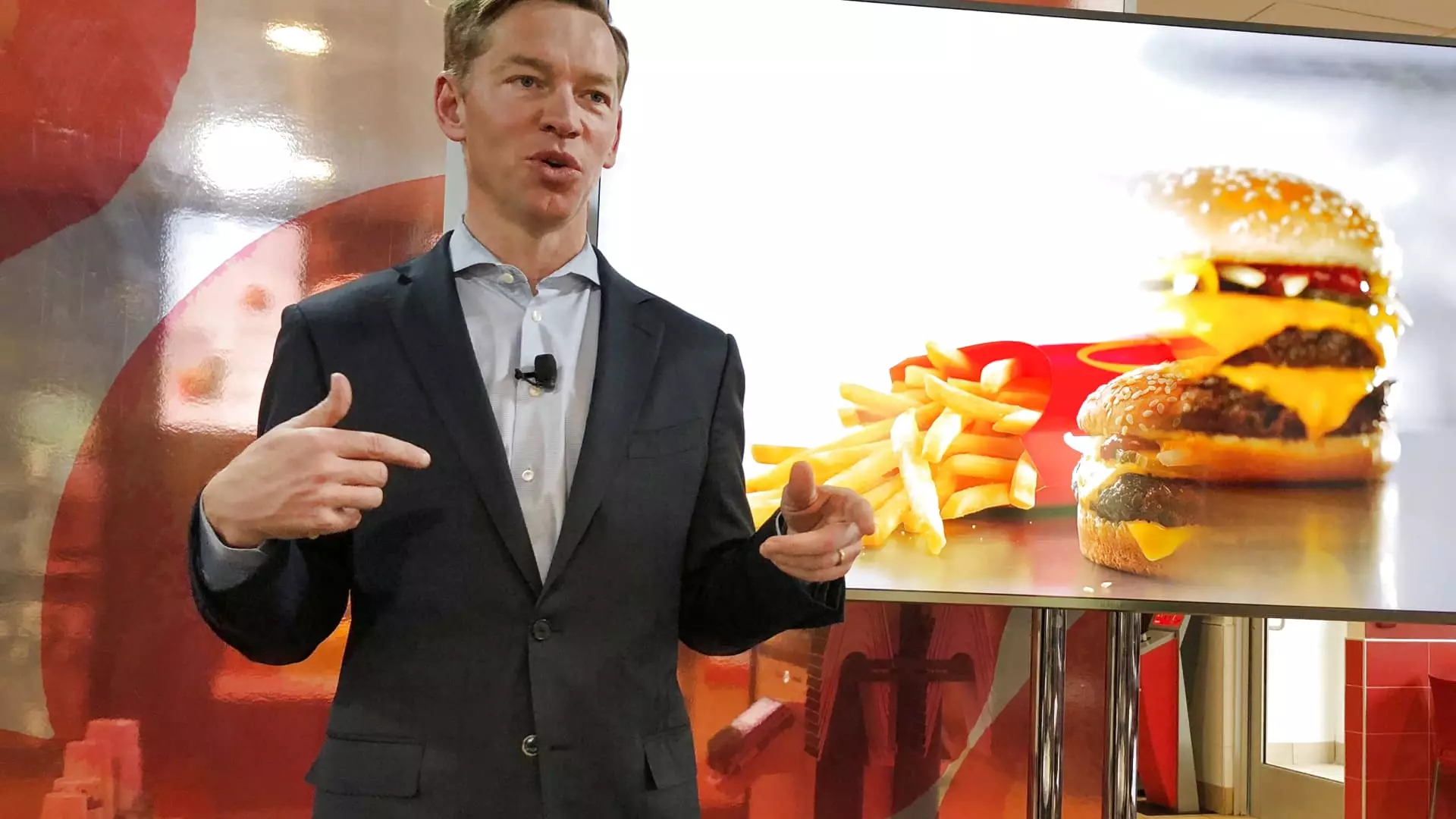In recent weeks, McDonald’s has faced a severe public relations crisis stemming from a deadly outbreak of E. coli linked to its popular Quarter Pounder burgers. This incident, which has been tied to 75 illnesses across 13 states and resulted in one reported death, has understandably raised concerns among its customers and investors alike. It’s a stark reminder of the vulnerabilities present in the food service industry and the far-reaching implications of foodborne illness outbreaks. As health authorities continue their investigations, particularly focusing on the slivered onions thought to be contributing factors, McDonald’s has taken decisive but cautious steps to navigate the repercussions of this crisis.
McDonald’s CEO, Chris Kempczinski, recently addressed investors, emphasizing a view of resolution regarding the outbreak. “How we’ve handled the issue, now that we’re moving … we view it as being behind us,” he asserted. Such statements indicate an attempt to reassure stakeholders that the crisis is under control, and the focus is shifting back towards business as usual. However, this sentiment can be problematic; while it is crucial to maintain investor confidence, assuming the crisis is fully resolved without fully addressing customer trust can be risky.
The immediate fallout was stark, with a visible decline in daily sales and foot traffic observed shortly after the outbreak was publicized. CFO Ian Borden noted that despite these challenges, the management does not expect a long-term detrimental effect on the company’s financials. Their approach appears rooted in optimism; nevertheless, the sentiment echoes a common corporate tactic of underplaying crises to preserve market performance.
In light of the health scare, McDonald’s has decided to temporarily reinstate Quarter Pounder burgers in about 3,000 locations while omitting slivered onions in approximately 900 restaurants. This is a calculated move aimed at balancing consumer demand with safety precautions. Moreover, it provides an opportunity for the corporation to gradually restore public confidence in their food safety protocols. Confirming the absence of E. coli in the burger patties themselves demonstrates McDonald’s commitment to quality control, yet the continued investigatory focus on the onions reflects the complexities inherent in food sourcing.
The fast-food giant’s recovery strategy is not only about reinstating menu items but also involves reassurance of the public and their customer base. Kempczinski’s apology for the incident appears genuine, and its delivery was framed as a commitment to rectify the situation and prevent future occurrences. However, the effectiveness of such apologies has historically been mixed and often relies heavily on subsequent actions taken by the company.
Financial results released by McDonald’s displayed a 0.3% increase in same-store sales compared to the previous year, indicating some recovery from the immediate crisis. While this growth is a positive turnaround from the previous quarter’s decline, it still falls short of Wall Street’s expectations. The contrasting results in different segments underline the challenges McDonald’s faces; while the U.S. market is slowly rebounding with value-oriented menu items, international markets are struggling, indicating a broader issue that cannot purely be explained by the recent health crisis.
Investor reactions have been volatile. The stock initially fell by 2.5% in premarket trading following the announcement but managed to stabilize by the opening bell. This fluctuation reflects the importance investors place on both consumer confidence and corporate accountability during crises.
The E. coli outbreak serves as a crucial point of reflection for McDonald’s and the fast-food industry as a whole. The connection between food safety and brand loyalty cannot be underestimated. This incident will likely lead to ongoing scrutiny from regulators and consumers alike. For McDonald’s, the imperative moving forward will be to not only ensure safety protocols meet enhanced standards but also to engage transparently with their customers about the measures being implemented.
As the fast-food giant works to rebuild its reputation, the coming months will be critical in determining whether the company can truly move past this crisis and if it can maintain consumer trust amidst ongoing scrutiny over food safety. This incident not only reshapes the narrative around McDonald’s but also signals to the entire industry the need for unwavering vigilance in food safety practices.

Leave a Reply